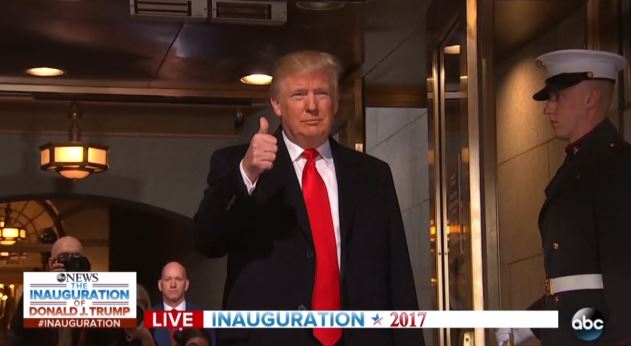 Almost fifteen years ago, South Park paid tribute to a trailblazing animated TV series by calling an episode “The Simpsons Already Did It.” According to Columbia Journalism Review columnist Joel Simon, regardless of the current hubbub over President Trump’s media-bashing, several “Latin American populist” heads of state, including the late Venezuelan president Hugo Chávez, already did it, or something a lot like it, long before Trump dubbed certain MSM outlets “the enemy of the people,” a description he reaffirmed Friday morning in his speech at CPAC.
Almost fifteen years ago, South Park paid tribute to a trailblazing animated TV series by calling an episode “The Simpsons Already Did It.” According to Columbia Journalism Review columnist Joel Simon, regardless of the current hubbub over President Trump’s media-bashing, several “Latin American populist” heads of state, including the late Venezuelan president Hugo Chávez, already did it, or something a lot like it, long before Trump dubbed certain MSM outlets “the enemy of the people,” a description he reaffirmed Friday morning in his speech at CPAC.
In a piece last Friday, Simon, the executive director of the Committee to Protect Journalists, argued that Trump and other current leaders, such as Bolivia’s Evo Morales and Nicaragua’s Daniel Ortega, understand that “a mobilized and committed base is more important than broad popular support in advancing their political agenda,” and that “the necessary first step of a strategy of fomenting greater political polarization is to marginalize the media, and more broadly to undermine its ability to provide a shared, unifying narrative.”
Simon commented that Trump is, and Chávez was, prone to “lashing out at the media at public events; denouncing and vilifying individual journalists, expelling reporters, blocking access, and threatening lawsuits…Like Trump, Chávez insisted on his own version of reality (now known as ‘alternative facts’) and his perspective was amplified by the segment of the media that supported his political project. Later in his administration, he built a government-funded media network that, not surprisingly, agreed with everything he said.”
In going after journalists, Simon alleged, Trump, much like Chávez, is a man with a plan (bolding added):
<<< Please support MRC's NewsBusters team with a tax-deductible contribution today. >>>
These systematic attacks on the media…fire up the base, which believe that traditional media do not represent their interests or concerns. Second, they provoke the media itself, which [then] adopts a more oppositional posture. This in turn further fuels the polarization on which the leaders depend and paves the way for the government to introduce legal restrictions.
…Elements in the [Venezuelan] media…engag[ed] in overtly partisan coverage intended to undermine Chávez’s rule…Once Chávez returned to power, he rallied his supporters behind a new law imposing broad restrictions on what the media could and could not cover under the guise of “ensuring the right to truthful information”…
The situation is obviously very different in the US, where we have a robust, independent and financially viable media; a highly protective legal framework; and a journalistic culture that values “objective” reporting. But Trump’s intent is clear.




